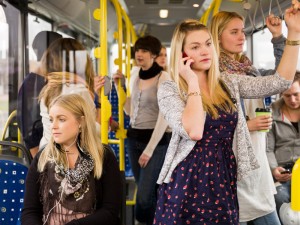David Kingman reports on the latest policy idea from the Liberal Democrats, which may see them offer young voters subsidised bus travel
Young people aged 16–21 would receive a Young Person’s Bus Pass that entitles them to two-thirds off the cost of their journey under a new policy that has recently been announced as part of the Liberal Democrat’s “pre-manifesto”. This document trails many of their policy ideas for the 2015 general election, so the Young Person’s Bus Pass is likely to come into being if the Liberal Democrats remain in government after the 2015 general election.
Scrapping “benefits for the rich and retired”
In a move which is bound to be controversial, the Liberal Democrats announced that the Young Person’s Bus Pass scheme would be funded by means-testing the free TV licence and Winter Fuel Payments, both of which are currently given to all pensioners regardless of need. Under the party’s proposal, these benefits would no longer be available to pensioners who qualify as higher-rate taxpayers.
This bold idea makes the Liberal Democrats the first of Britain’s major political parties to commit themselves to changing the regime of universal benefits for pensioners, which is a politically sensitive issue because of the high levels of turnout which are seen among this age group at elections.
Speaking at the launch of the pre-manifesto, Liberal Democrat leader Nick Clegg was keen to stress that this policy was part of a plan to give young people who are struggling more opportunities in life by helping them access work and education. As he told the Press Association:
“The Young Person’s Bus Pass will ensure that young people looking to access education or training can do so in an affordable way… Young people are required to stay in school until they are 18, but we haven’t done enough to give them the support that they need to do that – literally to help them get from A to B. I know there are people who say you mustn’t touch so-called universal pensioner benefits because politically it’s too risky. We don’t agree: what are effectively benefits for the rich and retired cannot be justified when there are so many young people struggling to get on their feet.”
The scheme would be administered under a similar system to the one that currently exists for the older people’s concessionary travel scheme, under which bus companies provide the service and are then reimbursed by each local authority according to a formula; central government ultimately provides the funding which pays for this through the block grant system.
Although he expressed a willingness to start means-testing some universal pensioner benefits, the Liberal Democrats have stopped short of arguing for the older person’s free bus pass to be scrapped, claiming that it is vital to ensuring the viability of many local bus routes.
Will the wheels come off?
While some critics might argue that this is policy is an attempt by the party to rebuild bridges with younger voters following the u-turn over the raising of tuition fees, there is clear evidence that it could do a lot to help the lives of young people. Many who belong to this age group are currently struggling with finding access to work or are low-paid, while local bus fares have risen by a whopping 66% since 2002, much more rapidly than wages.
The biggest barrier to this policy being implemented is likely to be the electoral arithmetic, which makes it extremely unlikely that the Liberal Democrats will be back in power after 2015 without forming another coalition. This policy could become a sticking-point in negotiations between the parties, as neither Labour nor the Conservatives have been willing to commit to any means-testing of pensioner benefits.
Perhaps just for that reason, the Liberal Democrats deserve to be applauded, as they may have unwittingly opened up a proper debate in Westminster for the first time about how much of our national resources the state should redistribute towards the wealthier members of the older generation.
